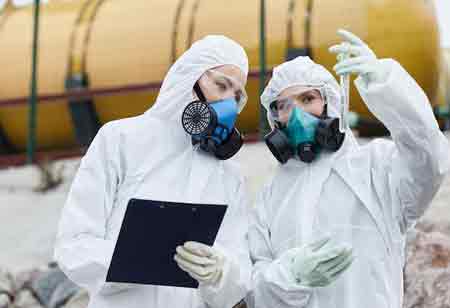Thank you for Subscribing to Environmental Business Review Weekly Brief
Impact of Waste Management on the Environment
Waste management has emerged as a global concern of paramount importance.

By
Environmental Business Review | Friday, November 24, 2023
Stay ahead of the industry with exclusive feature stories on the top companies, expert insights and the latest news delivered straight to your inbox. Subscribe today.
Waste management is critical in mitigating food waste and greenhouse gas emissions from its environmental impact.
FREMONT, CA: Waste management has emerged as a global concern of paramount importance. Waste is generated from various sources, including households, factories, construction sites, and nuclear power plants. With the world's population rising and evolving consumption patterns driven by improved lifestyles, waste management has become a pressing issue with far-reaching environmental and health consequences. Individuals and businesses must comprehend the significance of effective waste management to safeguard the planet and well-being. Today's burgeoning population has substantially increased waste production, including non-biodegradable and inorganic elements.
Effective waste management is the key to efficiently and responsibly disposing of all types of waste in the modern era. It is impossible to overstate how vital waste management is, primarily because it shields the environment from the harmful effects of inorganic and biodegradable waste components. Mismanagement of waste can result in water contamination, soil erosion, and air pollution, which have far-reaching consequences for ecosystems and human health. When waste materials such as plastic, glass, and paper are collected and managed efficiently, they can be segregated into different categories and processed to create new products.
The significance of waste management extends to food waste, a significant contributor to environmental harm. Food waste dumped into landfills produces methane gas as it decomposes without oxygen. It conserves natural resources and prevents the materials from ending up in landfills or oceans, which threaten marine life and human health. Inadequate sewage treatment in many regions of the world leads to problems such as eutrophication and beach closures. Waste management is a growing industry contributing to environmental protection and economic growth. The unregulated disposal poses environmental hazards and affects infrastructure.
Waste management holds economic significance. It preserves natural resources, biodiversity, and human life and positively impacts the economy by creating jobs in the waste management sector. Businesses can reap financial benefits from recycling the materials they produce, reducing waste disposal costs, and improving their environmental sustainability. Proper waste management helps minimize greenhouse gas emissions and conserves natural resources, enhancing a business's image. Restaurants, for instance, can donate perishable food items to those in need rather than allowing them to go to waste and harm the environment.
Efficient waste management is a shared responsibility. While governments play a crucial role, individuals also have a role in managing waste effectively. Individuals should strive to reduce waste at the source by minimizing daily waste production. Making informed choices about products and their disposal is essential. Some products can be reused multiple times. Items can be repurposed for the same or different uses. Donating books and clothes to those in need or upcycling clothing are examples of waste utilization. Recycling facilities can process waste, turning it into reusable materials.





